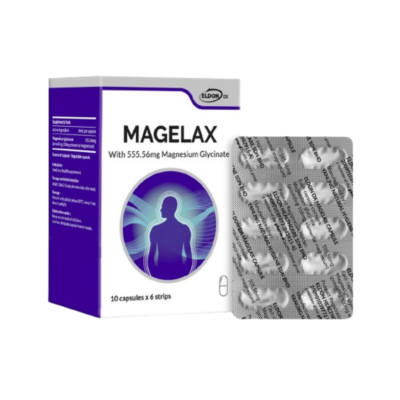This health article has been professionally reviewed by RPh Lee Kern Yeung (018489), a registered pharmacist under the Malaysia Pharmacy Board (LFM).
Insomnia is when a person has trouble falling asleep, staying asleep, or getting good-quality sleep—even when they have enough time and the right environment to sleep (1).

This leads to daytime impairment, such as feeling tired, moody, or unable to concentrate. Certain health conditions like neurological issues (e.g., movement problems) or other illnesses (e.g., pain, depression, or anxiety) can also lead to sleep difficulties.
In Malaysia, research shows that about 1 in 3 people (33.8%) experience insomnia symptoms, and around 1 in 8 (12.2%) live with chronic insomnia (2). The primary treatment goals for insomnia are to improve sleep quality and duration, as well as to reduce daytime impairment symptoms associated with poor sleep (3).
Fortunately, even without the use of medicines, there are some drug-free strategies that may help include:
- Stimulus Control Therapy (3)
Helps break the mental association between the bed and wakefulness:- Go to bed only when sleepy o Use the bed only for sleep or sex
- If unable to sleep within 20 minutes, leave the bed and return only when sleepy
- Wake up at the same time every day, regardless of sleep duration
- Avoid daytime naps
- Relaxation Techniques (3)
- Progressive Muscle Relaxation: Tense and relax muscle groups gradually, starting with the face
- Relaxation Response: Sit or lie comfortably, close the eyes, and focus on relaxed breathing
- Sleep Restriction Therapy (3)
The goal is to decrease the amount of time in bed thereby increasing the percentage of time spent in bed asleep. During the course of the therapy, the patient is recommended to stay in bed only as long as their average sleep time, but no less than 4 hours per night. - Sleep Hygiene with cognitive behavioral therapy for insomnia (CBT-I) Principles (4)
- Avoid clock-watching
- Keep digital devices away from the bed
- Follow a calming pre-sleep routine (e.g., reading, warm bath, light snack, or gentle stretching)
- Smart Eating Habits (3)
- Avoid heavy meals and excessive fluids near bedtime
- Avoid caffeine and nicotine 4–6 hours before sleep
- Do not use alcohol as a sleep aid
- Dietary Patterns (4)
Poor sleep is often linked to low intake of fruits and vegetables, high-fat food preferences, and irregular eating patterns, like skipping breakfast. - Magnesium Supplementation (5)
Magnesium is found naturally in many plant and animal foods, especially green leafy vegetables, legumes, nuts, seeds, and whole grains. However, supplementation may be needed if dietary intake is insufficient. Magnesium supports overall relaxation, both muscular and mental, for example, magnesium glycinate playing a key role in calming the nervous system and brain function. Magnesium supplements have been shown to improve subjective measures of insomnia and can be a helpful natural remedy. Learn more about Magnesium here!
Disclaimer: The information provided is for general knowledge and informational purposes only and should not be considered as medical advice or a substitute for professional consultation, diagnosis, or treatment. Always seek the advice of a qualified healthcare provider with any questions regarding a medical condition.
Reference:
- American Academy of Sleep Medicine. (2005). International classification of sleep disorders (2nd ed.): Diagnostic and coding manual. American Academy of Sleep Medicine.
- Zailinawati, A. H., Ariff, K. M., Nurjahan, M. I., & Teng, C. L. (2008). Epidemiology of insomnia in Malaysian adults: A community-based survey in 4 urban areas. Asia-Pacific Journal of Public Health, 20(3), 224–233. https://doi.org/10.1177/1010539508316975
- Schutte-Rodin, S., Broch, L., Buysse, D., Dorsey, C., & Sateia, M. (2008). Clinical guideline for the evaluation and management of chronic insomnia in adults. Journal of Clinical Sleep Medicine, 4(5), 487–504. https://doi.org/10.5664/jcsm.27286
- Arab, A., Karimi, E., Garaulet, M., & Scheer, F. A. J. L. (2024). Dietary patterns and insomnia symptoms: A systematic review and meta-analysis. Sleep medicine reviews, 75, 101936. https://doi.org/10.1016/j.smrv.2024.101936
- Abbasi, B., Kimiagar, M., Sadeghniiat, K., Shirazi, M. M., Hedayati, M., & Rashidkhani, B. (2012). The effect of magnesium supplementation on primary insomnia in elderly: A double-blind placebocontrolled clinical trial. Journal of research in medical sciences : the official journal of Isfahan University of Medical Sciences, 17(12), 1161–1169.







